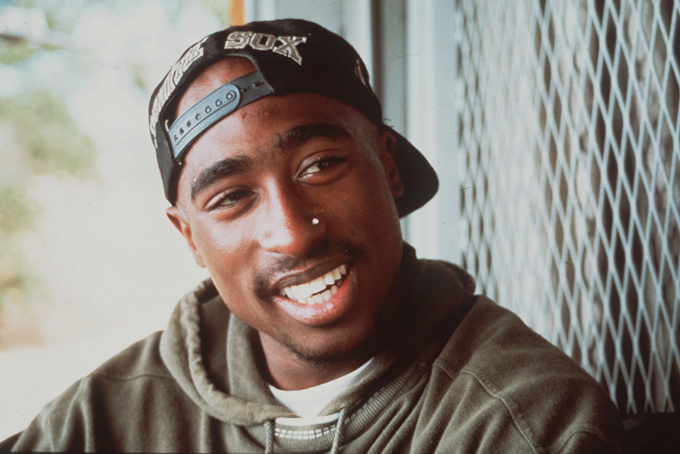on
In this Sept. 15, 1963, file photo, firefighters and ambulance attendants remove a covered body from the 16th Street Baptist Church in Birmingham, Ala., after by a deadly explosion detonated by members of the Ku Klux Klan during services. (AP Photo)
-
September 13
1663—The first documented slave rebellion in America is set to take place. The revolt in Gloucester County, Va., involved Black slaves and White indentured servants. However, it was betrayed by a White indentured servant.
1885—Alain L. Locke, philosopher and the first Black Rhodes scholar is born. He became a professor at Howard University and one of Black America’s leading intellectual figures.
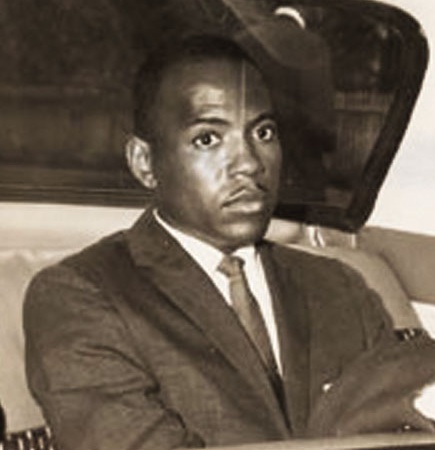
JAMES MEREDITH
1962—In an event which demonstrated the tenacity of racism, especially in the South, Mississippi Gov. Ross Barnett pledged to defy the federal government and block the court ordered admission of a Black man—James Meredith—to the University of Mississippi. He made his declaration during a statewide television and radio address. Barnett said he would go to jail to prevent integration, arguing, “There is no case in history where the Caucasian race has survived social integration.” Despite his talk, Barnett would eventually relent and Meredith (with the aid of U.S. Marshals) was allowed to attend the university.
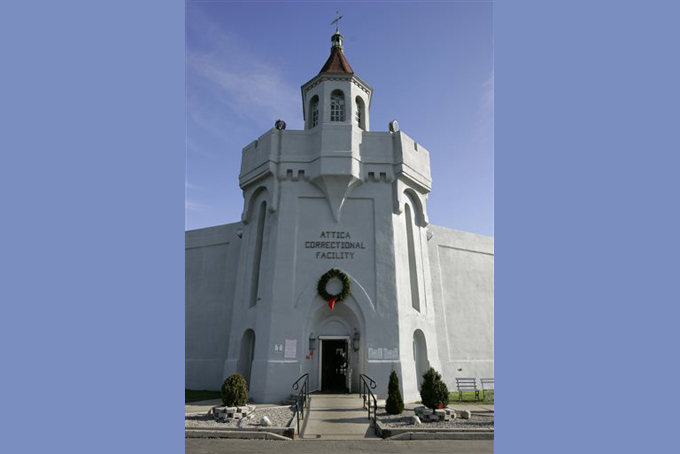
1971—Approximately 1,500 state troopers are ordered by Gov. Nelson Rockefeller to storm New York’s Attica prison to break up a takeover of the prison by Black inmates demanding better conditions. When the dust settled, the storming of the prison resulted in the deaths of 32 inmates and 10 guards who had been held hostage.

This 1993 file photo originally provided by Columbia Pictures shows rap musician Tupac Shakur is shown in a scene from, “Poetic Justice.” (AP Photo/Columbia Pictures, file)
1996—Pioneering rapper Tupac Shakur dies from his wounds after being shot in Las Vegas, Nev. He was only 25. Shakur has now become a near cult figure among rappers. His killers were never brought to justice.
-
September 14
1940—Blacks are allowed for the first time to enter all branches of the U.S. military when President Franklin D. Roosevelt, on this day, signs the Selective Service Act.
1973—Nasir Jones, known simply as Nas, was born in Queensbridge, N.Y. Nas is well known for his 1994 debut album Illmatic, which many consider to be one of the greatest hip-hop albums of all time.
-
September 15
1830—The First National Negro Convention takes place in Philadelphia, Pa. Top on the agenda were the better organizing of anti-slave activities and whether or not free Blacks should return to Africa.
1881—Inventor Jan E. Matzeilger is born in Dutch Guyana. He came to the United States in 1878 and by 1880 had patented a shoe lacing machine.
1889—One of Black America’s most outstanding poets, Claude McKay, is born. He would become a leading figure during the Black Cultural Revolution known as the Harlem Renaissance.
1928—Grammy Award-winning saxophonist Julian Edwin “Cannonball” Adderley born in Tampa, Fla. Adderley is remembered for his 1966 single “Mercy, Mercy, Mercy.” He performed with Miles Davis, playing on the seminal Davis records “Milestones” and “Kind of Blue” before embarking on a successful solo career.

In this Sept. 15, 1963, file photo, firefighters and ambulance attendants remove a covered body from the 16th Street Baptist Church in Birmingham, Ala., after by a deadly explosion detonated by members of the Ku Klux Klan during services. (AP Photo)
1963—In one of the most heartless terrorist attacks of the Civil Rights Movement, the 16th Street Baptist Church in Birmingham, Ala., is bombed by White supremacists and Ku Klux Klan members. Four little Black girls are killed. But instead of scaring African Americans into backing away from their demands, the act actually inspired the Civil Rights Movement.
-
September 16
1848—The French abolish slavery in all their territories. It would take a Civil War and another 17 years before slavery is abolished in America.
1921—Singer Jon Hendricks born in Newark, Ohio. He is considered one of the originators of vocalese, which adds lyrics to existing instrumental songs and replaces many instruments with vocalists. He is also considered one of the best practitioners of scat singing.
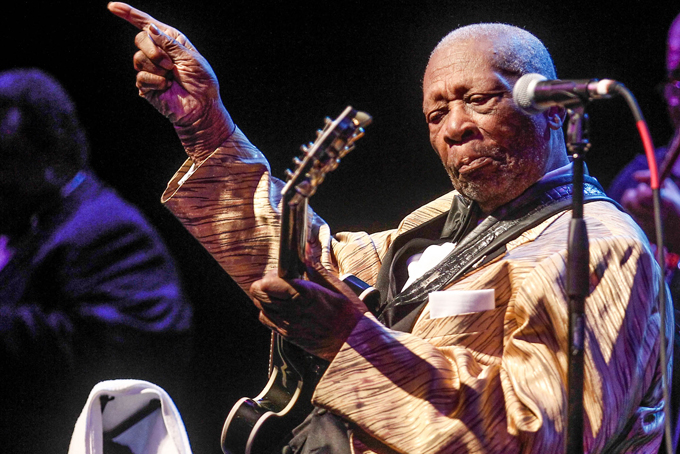
1925—Blues great B.B. King is born Riley B. King on this day in Itta Benna, Miss. King was an American blues singer, songwriter and guitarist. He won a 1970 Grammy Award for the song “The Thrill Is Gone.” His version became a hit on both the pop and R&B charts. He was inducted into the Blues Hall of Fame in 1980 and the Rock and Roll Hall of Fame in 1987. King died May 14, 2015 at the age of 89.
1933—“Emperor Jones” is released on this day by United Artists. It starred social activist Paul Robeson as Brutus Jones. It was the first Hollywood film with a Black leading man and a White supporting cast.
-
September 17
1787—The United States Constitution is approved but it includes three clauses allowing for the continuation of slavery even though it was supposed to be a document of freedom.
1861—Hampton Institute (now university) is founded. It has now become one of the nation’s leading predominately Black educational institutions.
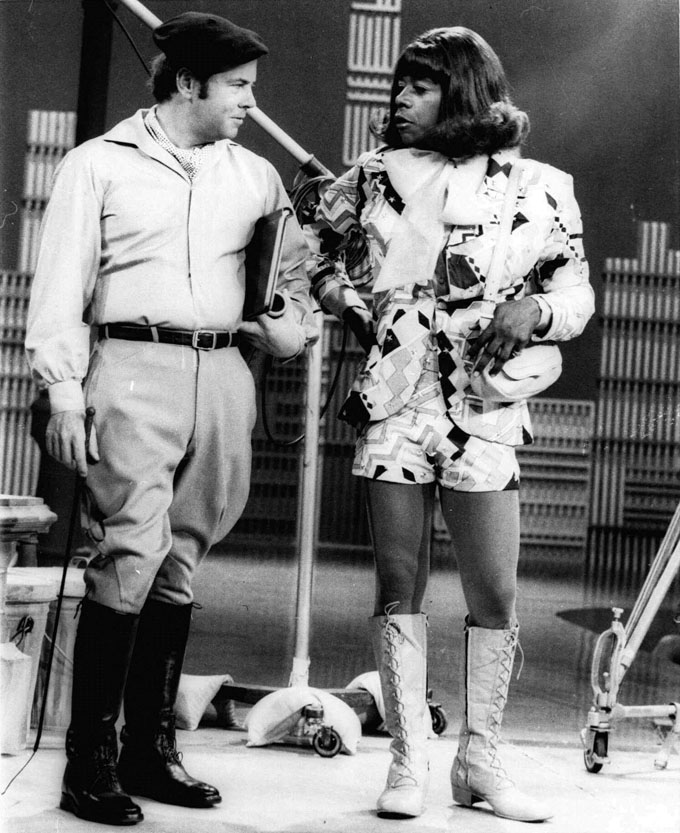
In this 1973 file photo originally released by NBC, comedian Flip Wilson, right, dressed as his famous character “Geraldine” appears with comic Tim Conway during the taping of Wilson’s television show. (AP Photo/NBC, File)
1970—The “Flip Wilson Show” premieres on NBC television. It is the first variety show (in prime time) to star an African American male since the “Nat King Cole Show.” During its first two seasons, its Nielsen ratings made it the nation’s second most watched show. Wilson was most famous for creating the role of Geraldine Jones, a sassy, modern woman who had a boyfriend named Killer (who, when not in prison, was at the pool hall). Wilson popularized such catchphrases as “What you see is what you get” and “The Devil made me do it!”
1973—Illinois becomes the first state to honor Civil Rights Movement icon Dr. Martin Luther King Jr. with a state holiday.
-
September 18
1850—Congress passes the Fugitive Slave Law as part of the Compromise of 1850. The Compromise was essentially a vain attempt to reconcile differences between the slave states of the South and the free states of the North as to whether Midwest states would be slave or free. The law basically required Free states to help slave states capture escaped slaves.
1895—Booker T. Washington delivered his famous (or infamous) “Atlanta Compromise” speech in which he promotes Black economic betterment at the expense of civil and political rights. The speech endeared him to Whites opposed to the social integration of Blacks, but it angered progressive Blacks, including scholar W.E.B. DuBois, who began to portray Washington as an “Uncle Tom.”
1980—Cuban cosmonaut Arnold Tamayo becomes the first Black person to fly on a space mission. He flew on a space craft from the then-Soviet Union.
-
September 19
1865—Atlanta University is founded in Atlanta, Ga. It was one of many educational institutions established during the Reconstruction period after the Civil War to educate former slaves.
1931—Soul singer Brook Benton, born Benjamin Franklin Peay, was born this day in Lugoff, S.C. He has more than 50 billboard chart hits as an artist including “A Rainy Night in Georgia,” “It’s Just A Matter Of Time” and “Endlessly.”
1981—An estimated 400,000 people from various labor and civil rights organizations rally in Washington, D.C., to protest the domestic policies of President Ronald Reagan. His policies were viewed by the demonstrating groups as anti-Black and opposed to the best interests of working-class people.
Join our email list to stay connected.


